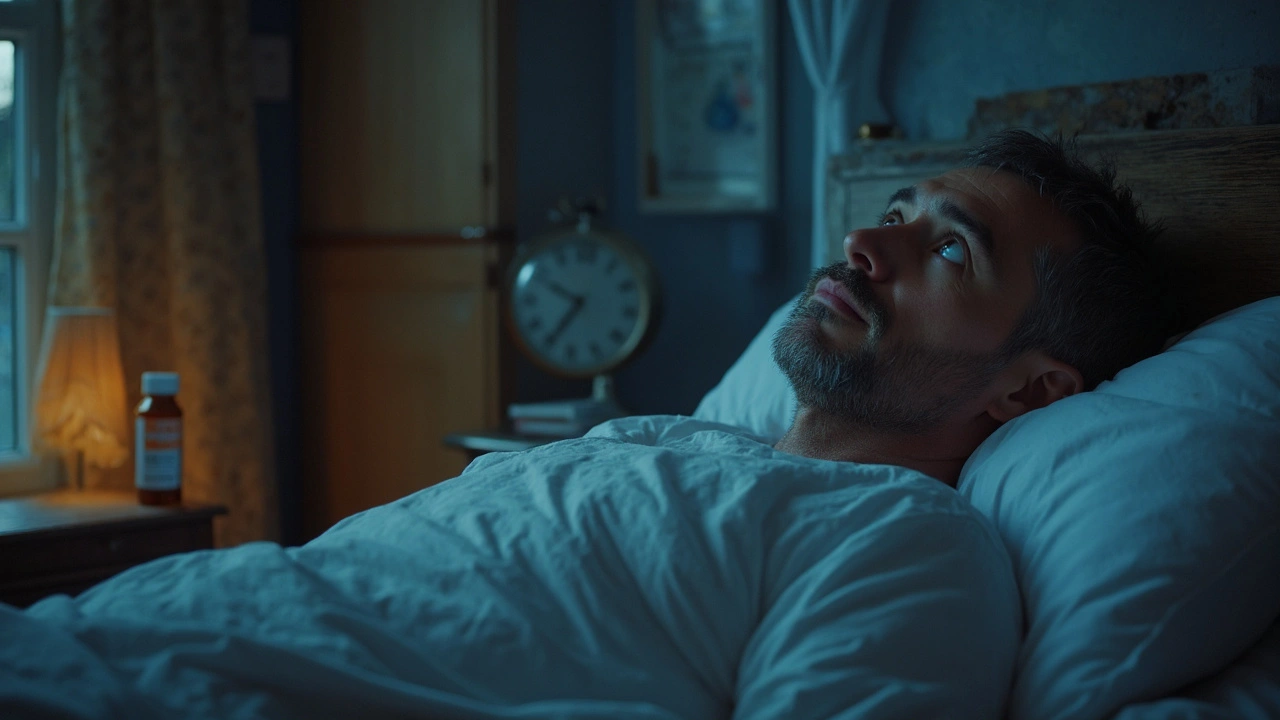Insomnia and Statins: Could Your Cholesterol Drug Be Messing With Sleep?
Waking up at 3 a.m. and staring at the ceiling? If you take a statin and your sleep changed after starting it, that’s worth checking. Statins help lower cholesterol and reduce heart risk. For most people they’re lifesavers. But a small number notice sleep problems after they begin treatment.
What the research says
Studies give mixed signals. Some case reports and smaller trials link statins to insomnia, vivid dreams, or fragmented sleep. Larger clinical trials often don’t show a clear effect. That means sleep issues happen for some people, but they aren’t a guaranteed side effect.
Why might statins affect sleep? A few ideas exist: lowering cholesterol could change how your brain makes sleep-related hormones, or statins might reduce coenzyme Q10 (CoQ10) for some people, which can cause fatigue or muscle aches that disturb sleep. Drug interactions and other meds can also raise the risk of sleep problems.
Practical steps if you suspect your statin is affecting sleep
Start by tracking. Keep a sleep diary for two weeks: note bedtime, wake time, naps, how many times you wake up, and how rested you feel. Compare that to the weeks before starting the statin.
Talk to your prescriber. Don’t stop the medicine on your own—suddenly stopping a statin can raise heart risk. Instead, describe the timing of sleep changes and share your diary. Your doctor may suggest:
- Changing the time you take the statin (morning vs evening). Some people sleep better if the dose moves to the morning.
- Trying a different statin. Hydrophilic statins (like pravastatin or rosuvastatin) are less likely to cross into the brain than lipophilic ones (like simvastatin), and some patients notice fewer sleep complaints after switching.
- Checking for drug interactions. Medicines such as certain antidepressants or heart drugs can interact with statins and affect sleep.
- Considering a temporary pause or dose change under medical supervision to see if sleep improves.
Some people try CoQ10 supplements. Evidence is mixed, but a short trial under your doctor’s guidance may help if you have muscle pain or fatigue that affects sleep.
Don’t forget basic sleep fixes. Good sleep hygiene—regular bedtimes, limiting screens before bed, avoiding heavy meals and caffeine late in the day—can make a big difference. If anxiety about health keeps you awake, mention that to your clinician too.
If insomnia is severe, sudden, or paired with mood changes, tell your doctor right away. They may refer you to a sleep specialist or review other causes like sleep apnea, thyroid issues, or new medications.
Statins save lives for many people. If sleep problems pop up after starting one, you have options: track symptoms, talk to your doctor, try timing or type changes, and use sleep-friendly habits. Small changes often fix the problem without giving up heart protection.

Do Statins Affect Sleep? The Truth About Statins and Sleep Quality
Statins help lower cholesterol, but do they affect your sleep? This article digs deep into the science and real-life experiences around statins and sleep quality. You'll learn about their impact on REM cycles, why some people struggle with insomnia or daytime tiredness, and tips for managing these issues. Get practical advice and find out where to read more on coping with statin-related sleep problems.
